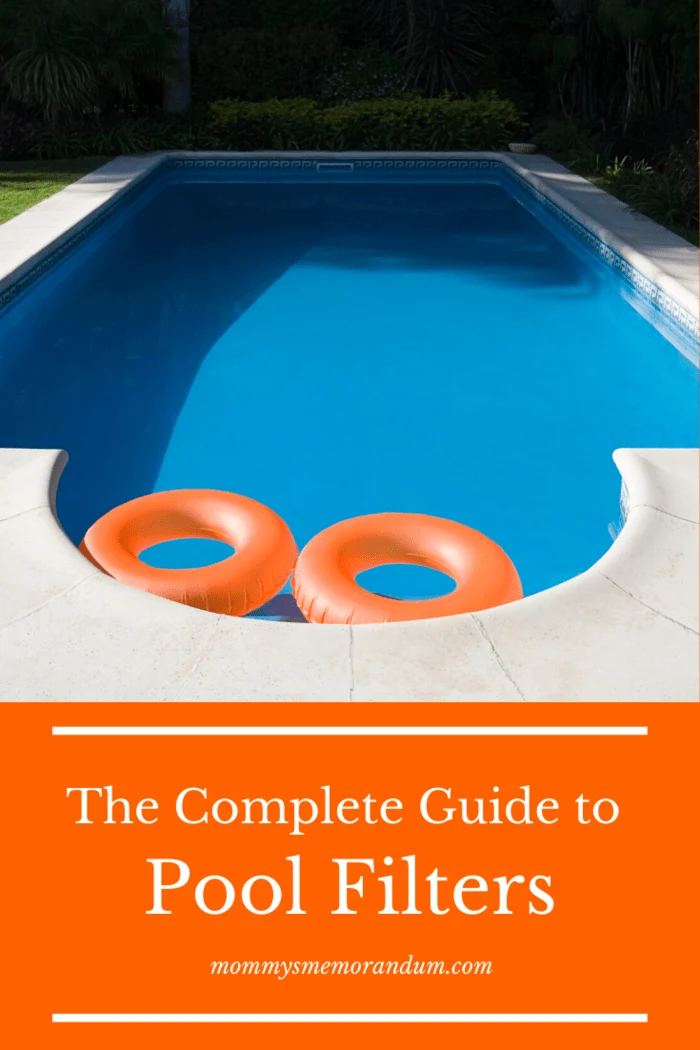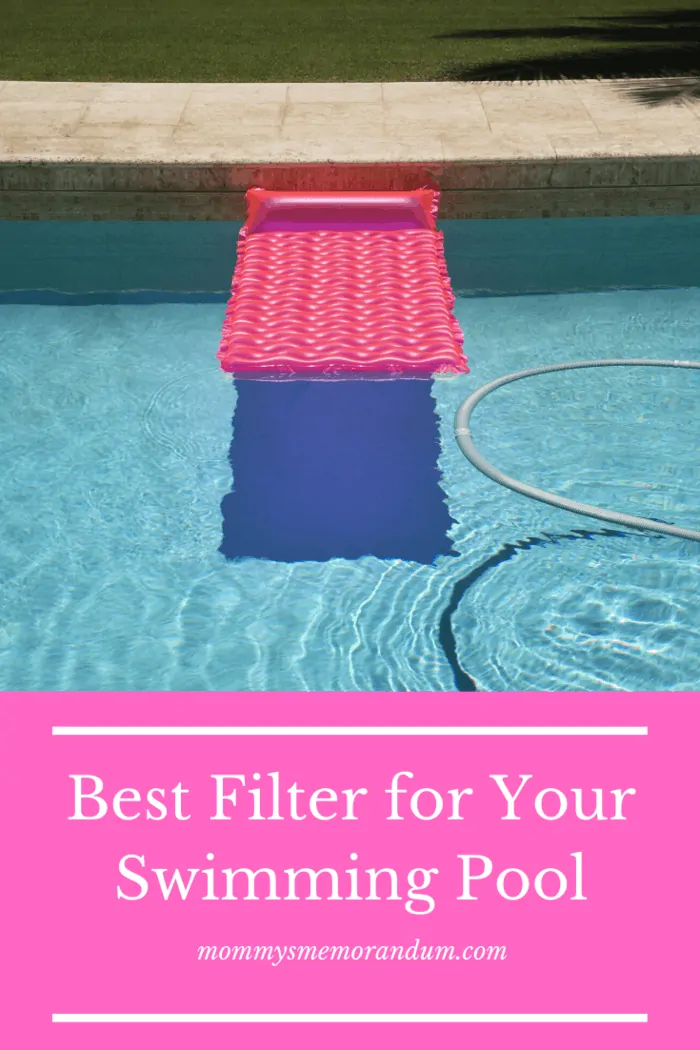Choosing the Best Pool Filter: Key to a Clean and Clear Swimming Pool
Maintaining a crystal-clear and hygienic swimming pool requires several crucial steps, and one of the most important is selecting the right type of pool filter. The pool filter plays a vital role in removing debris and dirt from the water, allowing sanitizers like bromine, chlorine, or other chemicals to focus on effectively destroying harmful bacteria. To ensure optimal performance, it is essential to consider the sizing recommendations when choosing a pool filter carefully.
When evaluating potential pool filters for purchase, it is advisable to prioritize the recommended size. It might be even better to opt for a larger filter if it fits within your budget. Smaller filters may not always be as effective, especially when thoroughly cleaning hard-to-reach areas, such as the edges between different pool sizes. The appropriate size for your pool filter is crucial to maintaining a clean pool environment. Additionally, various cleaning services are worth exploring to help keep your pool in top condition.
A pool filter works with swimming pool chemicals to create a healthy and enjoyable swimming experience. Three main types of pool filters are available on the market: cartridge filters, diatomaceous earth (DE) filters, and sand filters. Each of these filter types has its own advantages and can effectively perform the task of keeping your pool water pristine.
It is important to note that no definitive “best” filter will suit every application. The choice of the most suitable filter ultimately depends on the preferences and requirements of the pool owner. By understanding the different filter types and their benefits, you can make an informed decision about the best filter type for your specific pool, ensuring a clean and inviting swimming environment for everyone to enjoy.

Know the Type of Filter That Is Best for Your Swimming Pool
Let’s dive into the different types of pool filters to help you determine which is best for your swimming pool.
Sand Pool Filters
Sand pool filters are the most common and oldest type available on the market. They use a filter tank filled with a specific grade of sand known as #20 silica sand, easily found at local stores or gravel and sand yards. The filtering process begins when water enters the tank and is pushed down through the sand bed, trapping debris and dirt particles in the water.
As the water moves through the sand, it reaches the bottom of the tank and enters the laterals. These laterals are slotted pipes that filter the pool water before it is directed back into the swimming pool. The central tube within the filter also facilitates the return of clean, filtered water to the pool.
Sand filters are best suited for filtering particles of 20-40 microns. While they may not be as effective as other types of pool filters in removing very fine particles, they still provide adequate filtration for most common debris found in swimming pools.
One advantage of sand filters is their ease of maintenance. They typically require periodic backwashing or cleaning to remove accumulated dirt from the filter. Backwashing involves reversing the water flow through the filter to flush out trapped debris. Monitor the pressure gauge on the filter and backwash when the pressure reaches 8-10 psi above the startup reading.
However, backwashing alone is not enough to maintain optimal filter performance over time, says The Spruce. The sand particles within the filter become smooth and lose their ability to trap debris effectively. The sand needs to be replaced at this stage to ensure the filter functions properly. On average, sand replacement is required every five to seven years. Undersized sand filters may need more frequent sand changes.
By understanding the functionality and maintenance requirements of sand pool filters, you can make informed decisions about their suitability for your swimming pool, ensuring efficient filtration and clean, inviting water for your enjoyment.
For more pool maintenance tips and expert advice, explore our other articles and guides to keep your swimming pool in top shape.

Cartridge Pool Filters
Cartridge pool filters derive their name from the fact that they contain a spun pleated polyester cartridge that resembles the air filters commonly found in cars. These filters operate by forcing water through the folds of the cartridge, effectively trapping debris particles as small as 5-25 microns. Compared to sand filters, cartridge filters offer an improvement in terms of filtration efficiency.
One of the reasons why cartridge pool filters are popular is their low maintenance requirements. Larger filters of this type typically need cleaning only when the pressure exceeds the standard readings by 8 to 10 psi or at intervals of around 6 months. It’s important to note that each time the pool cartridge is cleaned, a certain degree of its filtering ability is lost. Over time, this can accumulate debris and oils that cannot be effectively removed, necessitating cartridge replacement.
On average, cartridge replacement is recommended every 3-5 years. The cost of replacement cartridges can vary, but you can expect to spend up to $100 for each cartridge. It’s worth mentioning that some filters may have multiple cartridges, and in such cases, seeking professional guidance can be beneficial in determining the appropriate replacement procedure. Replacement of this filter cartridge (watch on YouTube),
When searching for replacement cartridges, it’s important to consider the specifications and compatibility of the filters. Different filters may require specific types or sizes of cartridges, and a professional can assist you in selecting the right ones for your particular pool filter.
By understanding cartridge pool filters’ structure, maintenance, and replacement requirements, you can make informed decisions when choosing and maintaining these filters. This ensures efficient filtration and helps keep your pool water clean, clear, and ready for enjoyable swimming experiences.

Diatomaceous Pool Filters
Diatomaceous pool filters, often called D.E. filters, are specifically designed to effectively remove particles as small as 1 to 3 microns in size. These filters are renowned for their exceptional filtration capability, making them the most efficient type.
D.E. filters consist of grids or fingers coated with a fine powder made of diatomaceous earth. This powdered substance is responsible for carrying out the crucial filtering function of the filter. Unlike other filters where the filter media is included with the filter itself, the diatomaceous earth powder is typically sold separately. It is added to the filter by pouring it directly through a skimmer.
Similar to sand filters, diatomaceous pool filters require periodic backwashing. This process is performed when the pressure gauge on the filter reads 8-10 psi above the standard reading. Backwashing flushes out most of the diatomaceous earth powder, and it is important to note that this flushed material should not be directed into sanitary sewer systems or streams. Appropriate disposal procedures should be followed.
After backwashing, a fresh application of diatomaceous earth powder must be added to the filter through the skimmer to maintain optimal filtration efficiency. While diatomaceous filters are highly effective, it’s important to know that they are generally more expensive than other filters.
When purchasing pool filters, there are several factors to consider to make the right choice. Firstly, the size of the filter is crucial. Consider the turnover rate in terms of gallons per minute and select the one that best suits your needs. Opting for a larger filter may be worthwhile if it is within your budget.
Next, determine the level of cleanliness you desire for your pool water. For personal use, frequent cleanups may not be necessary, but it’s still advisable to perform maintenance as often as possible to ensure optimal water quality.
Lastly, the maintenance costs and time investment required for the filter must be considered. Different filters have varying maintenance requirements, so assessing the resources you are willing to allocate for filter upkeep is essential.
By carefully considering these factors, you can make an informed decision when selecting a diatomaceous pool filter, ensuring efficient filtration and enjoying clean and inviting pool water.
Final Thoughts
In conclusion, selecting the right pool filter is crucial for maintaining a clear and clean swimming pool. Each type of filter, whether a sand filter, cartridge filter, or diatomaceous earth (D.E.) filter, offers unique benefits and considerations.
Sand filters, the most common and oldest type, rely on a bed of sand to trap debris and dirt particles. While they may not be as effective in filtering small particles, they are relatively low-maintenance and easy to operate.
Cartridge filters utilize pleated polyester cartridges to capture debris as small as 5-25 microns. They offer improved filtration compared to sand filters and are known for low maintenance requirements. Regular cleaning and occasional cartridge replacement are necessary to ensure optimal performance.
Diatomaceous earth (D.E.) filters are the most efficient filtration, capable of removing particles as small as 1-3 microns. These filters use a fine powder made of diatomaceous earth to capture debris. D.E. filters require backwashing and replenishing the powder periodically to maintain their effectiveness. While they provide excellent filtration, they come with a higher price tag.
Factors such as filter size, desired water cleanliness, maintenance costs, and time should be considered when choosing a pool filter. Additionally, seeking professional guidance and following proper procedures for backwashing and filter media disposal are essential for optimal performance and environmental responsibility.
By understanding the characteristics and maintenance requirements of different pool filters, you can make an informed decision to ensure clean and inviting pool water for everyone. Regular maintenance and adherence to recommended procedures will contribute to the longevity and efficiency of your chosen pool filter, providing a healthy and refreshing swimming experience.
